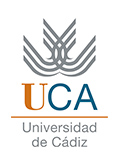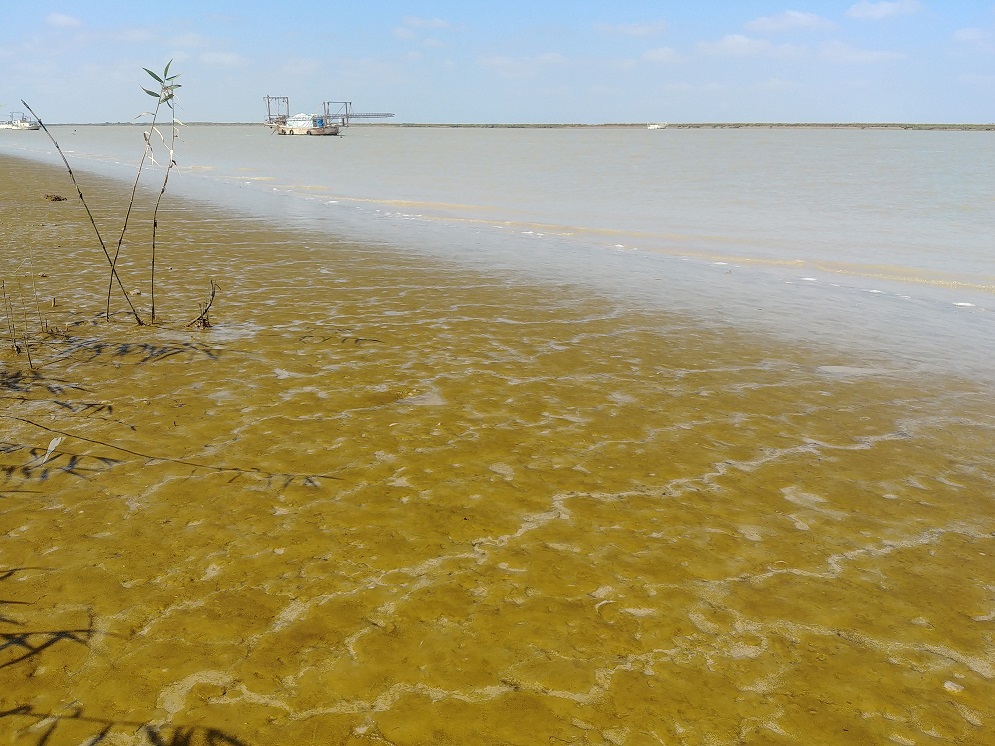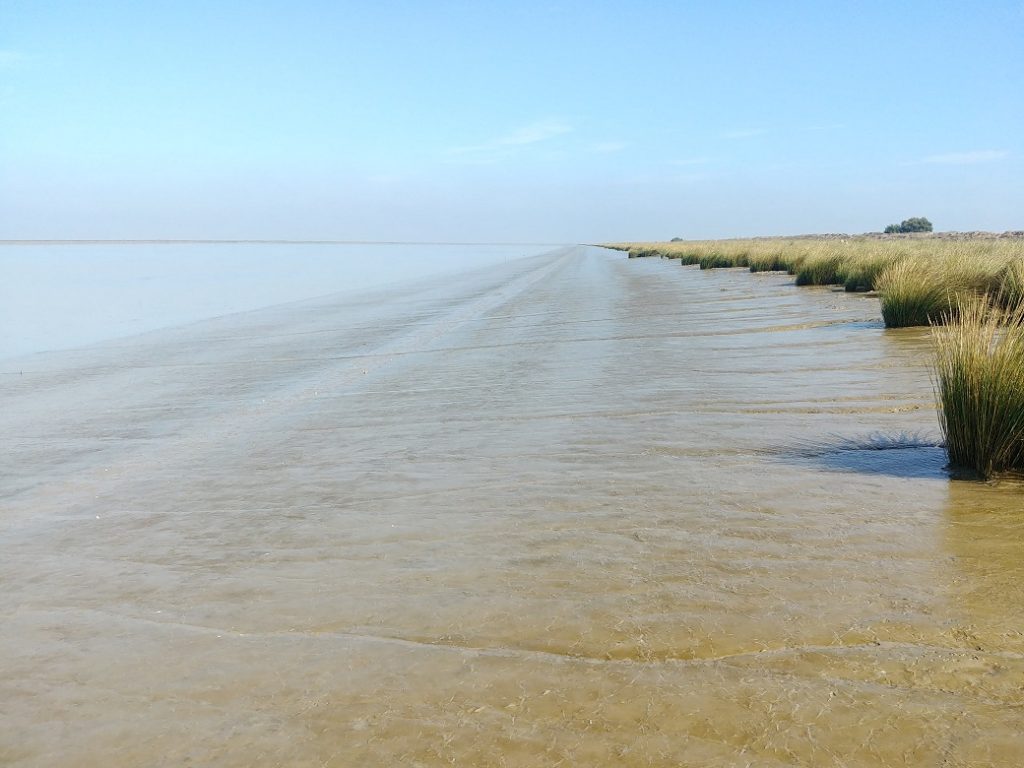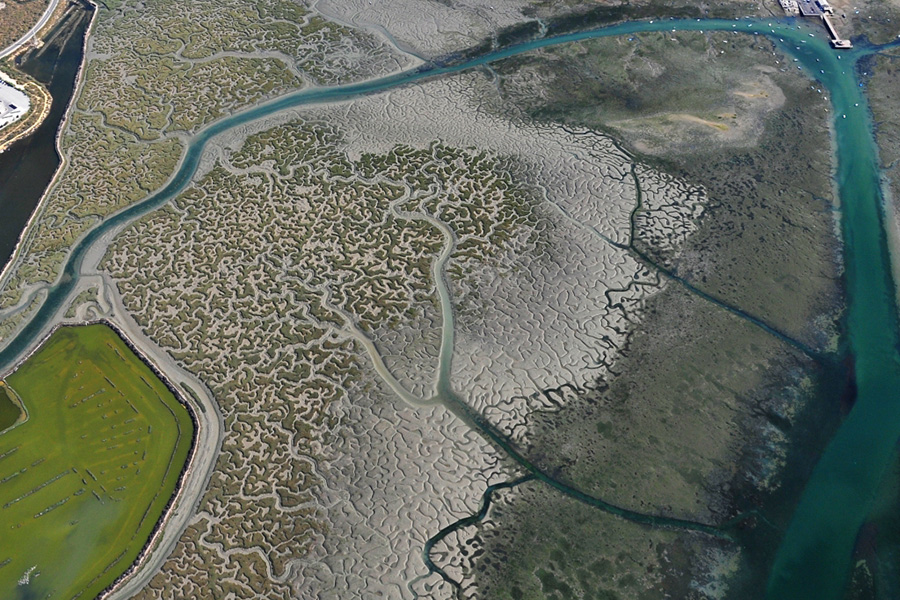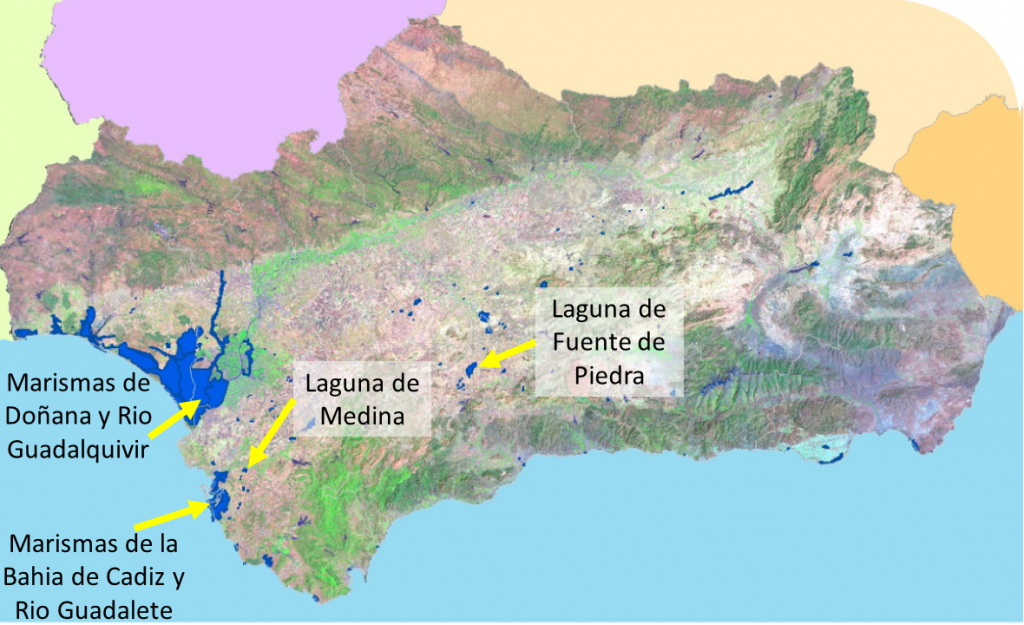Impacts of heat waves in shallow coastal environments: effects on microbial communities and the release of greenhouse gases
FEDER-UCA18-107225 // 2014-2020 ERDF Operational Programme and by the Department of Economy, Knowledge, Business and University of the Regional Government of Andalusia // PI: Emilio Garcia-Robledo (154.990 €)
Project Summary
The increase in the average temperature in Andalucía during the last half century is evident, being between 0.1 to 0.44ºC/decade. In addition, the frequency and duration of heat waves (>35ºC) is also increasing at all the coastal provinces of our community in recent years.
The wetlands of Andalucia, such as marshes and shallow lagoons, constitute areas of high ecological value offering multiple ecosystem services. Given their relative low volume of water, these areas are very sensitive to extreme events.
The metabolic balance and the coupling of aerobic and anaerobic processes determine the role of these ecosystems in terms of production or net consumption of some of the main greenhouse gases such as CO2 (net metabolism) and N2O (balance between different processes such as nitrification and denitrification pathways). The climatic alterations occurring nowadays probably have a high impact on aquatic ecosystems; however, the effect of extreme climatic events on the composition of the microbial community and on biogeochemical cycles is virtually unknown.
The main objective of this project is to study the effect of climatic alterations such as heat waves on the metabolism and microbial community composition in shallow aquatic systems, evaluating their effect on the production and release of greenhouse gases. This objective will be addressed by investigating: 1) the effect of sustained temperature increases on the net metabolism (net CO2 production) of the microbial community in a typical marsh area, such those from the Bay of Cádiz, taking into account the daily light cycles and the variability produced during the annual cycle and 2) the effect of heat waves on the microbial processes involved in the recycling of nutrients and in the production and release of nitrous oxide.
Project results:
- Herdís Steinsdóttir. Master Thesis, Danish Technical University (Denmark) (2018). Increasing temperatures in shallow aquatic environments: effects on nitrous oxide emissions in the Bay of Cádiz area. Supervisors: Emilio Garcia-Robledo and Colin Stedmon.
- Valle Pérez Rodríguez. Master Thesis, Universidad de Cádiz (2018). Impacto de olas de calor en sistemas acuáticos someros: Alteración de flujos de nutrientes y gases de efecto invernadero en la Bahía de Cádiz. Supervisors: Emilio Garcia-Robledo y Sokratis Papaspyrou.
- Valle Perez Rodriguez, Emilio Garcia-Robledo, Sokratis Papaspyrou, Ana Sierra, Alfonso Corzo (2019) Impact of heatwaves in shallow aquatic systems: Changes in O2 , N2O and CH4 fluxes in the sediment-water interface. Conference poster: II International Congress of Young Marine Researchers. link
